
The Government has issued Decree No. 167/2024/ND-CP amending and supplementing a number of articles of Decree No. 91/2015/ND-CP dated October 13, 2015 of the Government on state capital investment in enterprises and management and use of capital and assets at enterprises, which have been amended and supplemented by Decree No. 32/2018/ND-CP dated March 8, 2018 of the Government and Decree No. 140/2020/ND-CP dated November 30, 2020 of the Government.
Decree No. 167/2024/ND-CP clearly states the rights, responsibilities, salaries, remuneration, bonuses and other benefits of the representative of state capital in accordance with the provisions of Articles 48 and 50 of the Law on Management and Use of State Capital Invested in Production and Business at Enterprises and the following contents:
The representative of state capital in an enterprise with shares or capital contributions of the State must seek the opinion of the owner's representative agency on the annual post-tax profit distribution plan of the enterprise for which he/she represents capital in order to participate in giving opinions, voting and deciding at the General Meeting of Shareholders and the meeting of the Board of Members as prescribed.
Before directing the representative to give opinions, vote and make decisions at the General Meeting of Shareholders or the meeting of the Board of Members, the representative body of the owner must send a written request for opinions to the financial agency at the same level (for enterprises with shares and capital contributions of the State holding 36% or more of the charter capital). Within 10 working days from the date of receipt of the document of the representative body of the owner (attached: the current charter of organization and operation of the enterprise, audited annual financial statements and the plan for annual dividend and after-tax profit distribution of the enterprise), the financial agency at the same level shall give opinions so that the representative body of the owner can direct the representative of the State capital portion at the enterprise to give opinions, vote and make decisions at the General Meeting of Shareholders or the meeting of the Board of Members. The plan for distributing annual after-tax profits at enterprises with shares and capital contributions from the State (except for credit institutions that are joint-stock commercial banks with State capital) must ensure implementation according to the following principles:
For enterprises with shares or capital contributions in which the State holds more than 50% of the charter capital or total number of voting shares, the annual dividend and after-tax profit distribution plan is distributed in the following order:
Divide profits among associated capital contributors according to the provisions of the signed economic contract (if any).
Offset losses of previous years that have expired and are deductible from pre-tax profits as prescribed.
Up to 30% is allocated to the enterprise development investment fund (if the enterprise's Charter of organization and operation stipulates the allocation of this Fund).
Deductions from the reward fund, welfare fund for employees in enterprises, and bonus fund for enterprise managers according to Government regulations on labor, salary, remuneration, and bonuses for companies with State-controlled shares and capital contributions.
The remaining profits are distributed in cash and shares to shareholders and capital contributors. Dividends and profits distributed in cash to the State capital contribution in the enterprise are paid into the State budget according to regulations.
The Decree clearly states that dividend payment in shares is only applicable to joint stock companies within the scope of additional state capital investment to implement important national projects according to the classification criteria prescribed in the Law on Public Investment and approved by competent authorities in project policy. The representative agency of the owner shall fully exercise the rights and responsibilities prescribed in Article 43 of the Law on Management and Use of State Capital Invested in Production and Business at Enterprises, ensuring the effective use of capital from dividend payment in shares, without creating loopholes for embezzlement or corruption. If there is a violation, it shall be handled according to the provisions of law.
For enterprises with shares and capital contributions in which the State holds from 36% to 50% of the charter capital, after receiving opinions from the financial authority at the same level, the owner's representative agency is responsible for directing the representative of the State capital portion in the enterprise to participate in giving opinions, voting and deciding at the General Meeting of Shareholders and the meeting of the Board of Members on the annual after-tax profit distribution plan in the same order as enterprises with shares and capital contributions in which the State holds from 50% or more of the charter capital as mentioned above.
For enterprises with shares and capital contributions in which the State holds less than 36% of the charter capital, based on the annual production and business plan, the owner's representative agency is responsible for directing the representative of the State capital portion at the enterprise to participate in giving opinions, voting and deciding at the General Meeting of Shareholders and the Board of Members' Meeting on the appropriate annual after-tax profit distribution plan, in which the remaining profit after setting aside funds according to the Charter and Financial Management Regulations shall be fully distributed as dividends and profits in cash to shareholders and capital contributors. For dividends and profits distributed in cash for the State capital portion contributed to this enterprise, they shall be paid into the State budget according to regulations.
Report on production, business and financial situation
The Decree clearly states that for credit institutions that are joint stock commercial banks with state capital, the distribution of profits after corporate income tax shall be implemented in accordance with the provisions of Decree No. 93/2017/ND-CP dated August 7, 2017 of the Government on financial regime for credit institutions, foreign bank branches and financial supervision, evaluation of the efficiency of state capital investment in credit institutions with 100% state-owned charter capital and credit institutions with state capital and amended, supplemented and replaced documents.
Periodically within a maximum period of 15 days from the end of each quarter and 30 days from the end of the year and ad hoc upon request of the owner's representative agency and the financial agency at the same level, the representative of the state capital shall report on the production and business situation, the financial situation and propose solutions for the enterprise for which he/she is appointed to represent the state capital. The report of the representative of the state capital shall be sent to the owner's representative agency and the financial agency at the same level according to the form prescribed in Appendix III issued with this Decree.
Source: https://pnvnweb.dev.cnnd.vn/quy-dinh-moi-ve-quyen-trach-nhiem-nguoi-dai-dien-phan-von-nha-nuoc-tai-doanh-nghiep-20241228212600639.htm



![[Photo] Ready for the top competitions of Vietnamese table tennis](https://vphoto.vietnam.vn/thumb/1200x675/vietnam/resource/IMAGE/2025/5/18/9c547c497c5a4ade8f98c8e7d44f5a41)

![[Photo] Party and State leaders attend the special art program "You are Ho Chi Minh"](https://vphoto.vietnam.vn/thumb/1200x675/vietnam/resource/IMAGE/2025/5/18/6895913f94fd4c51aa4564ab14c3f250)
![[Photo] Many young people patiently lined up under the hot sun to receive a special supplement from Nhan Dan Newspaper.](https://vphoto.vietnam.vn/thumb/1200x675/vietnam/resource/IMAGE/2025/5/18/6f19d322f9364f0ebb6fbfe9377842d3)

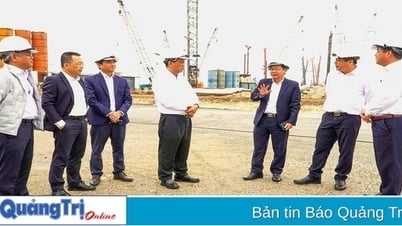

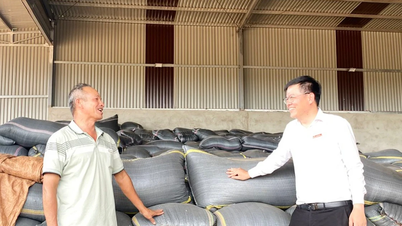



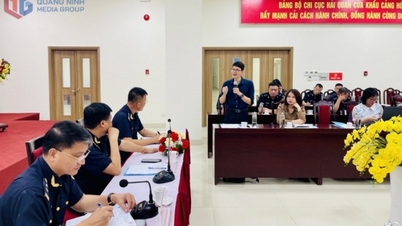









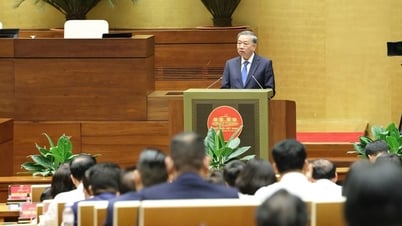































































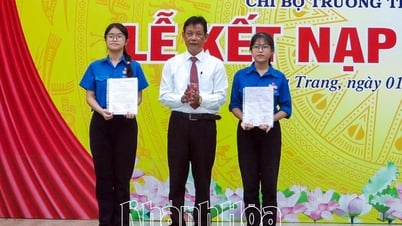
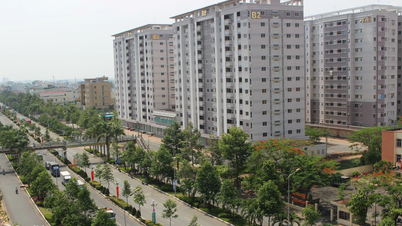











Comment (0)